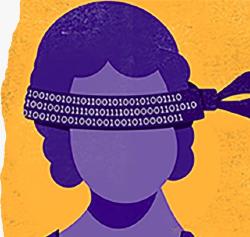Summary

The more frequent and inherent the permeation is in sensitive aspects of our lives, especially algorithmic decision-making (ADM), specifically, risk assessment tools (RATs) in the criminal justice system, the more pressing the need becomes for technology, law and the society to be critically analysed. As in the face of all novelty, algorithmic decision-making presents new challenges for law, however, now more than ever by concussing law’s historical monopoly on defining and regulating rights where jurists must adhere to law’s function and administer a framework in which law does not merely follow the decision-making algorithms but rather channel it for its effective deployment and usage. It is more important than ever to map the alterations and transformations in the criminal realm. As such is the pursuit, the research manifests itself in its quest of tracing the changes in the principles and norms of criminal justice, the paradigm shift, through the proliferation of algorithmic decision-making. It specifically explores the pre-trial machine learning tools (risk assessment tools -RATs) mainly in the U.S. (the work refers to the other common-law countries such as Canada and the U.K.).
This research aspires to contribute to the field in three ways.
Firstly and most importantly, it aims to take the standpoint of an observer in order to map the changes not just regarding the relation between technical tools and normative realm of law, but also the nuances that come forth in the merger of law and technology, especially the logic and rationality that is birthed.
Second, it will attempt to fill the gap of lack of emphasis on presumption of innocence and individualised sentencing in the literature as well as arguing for evidentiary regulation of the RATs.
Moreover, in the long run, the project wishes to delve into whether the legal values and rules in criminal trial in civil jurisdictions are ‘Americanising’ and further desires to contribute to the discussion of ‘social acceptance of technology in law’ and whether different legal cultures and traditions change and affect the approaches towards engagement with technological tools.
Research Questions
Hypothesis: Algorithmic decision-making is causing a paradigm shift in the norms of criminal justice system.
- How does the actuarial model fit it in with the procedural rights, namely, presumption of innocence and individualised sentencing and evidentiary requirements?
- How do algorithmic decision-making influence judicial decisions in practice?
- Does the utilisation of the tools change the current system to a legal-technical system?
Publications
Risk Assessment Tools: An Essay on Arguing for its seat in Evidence Law (awaiting)
Creation of the Legal-Technical Systems (Critical Legal Thinking; awaiting)
Bahçeşehir University, (Institute for Global Understanding of Rule of Law: IGUL), “Using Risk Assessment Tools in the Pre-Trial Process”
Istanbul University, (Law and Culture Association), “What are Risk Assessment Tools?”
ACM FAcct Conference 2021, “Doctoral Consortium”
ICAIL 2021, “Doctoral Consortium”
